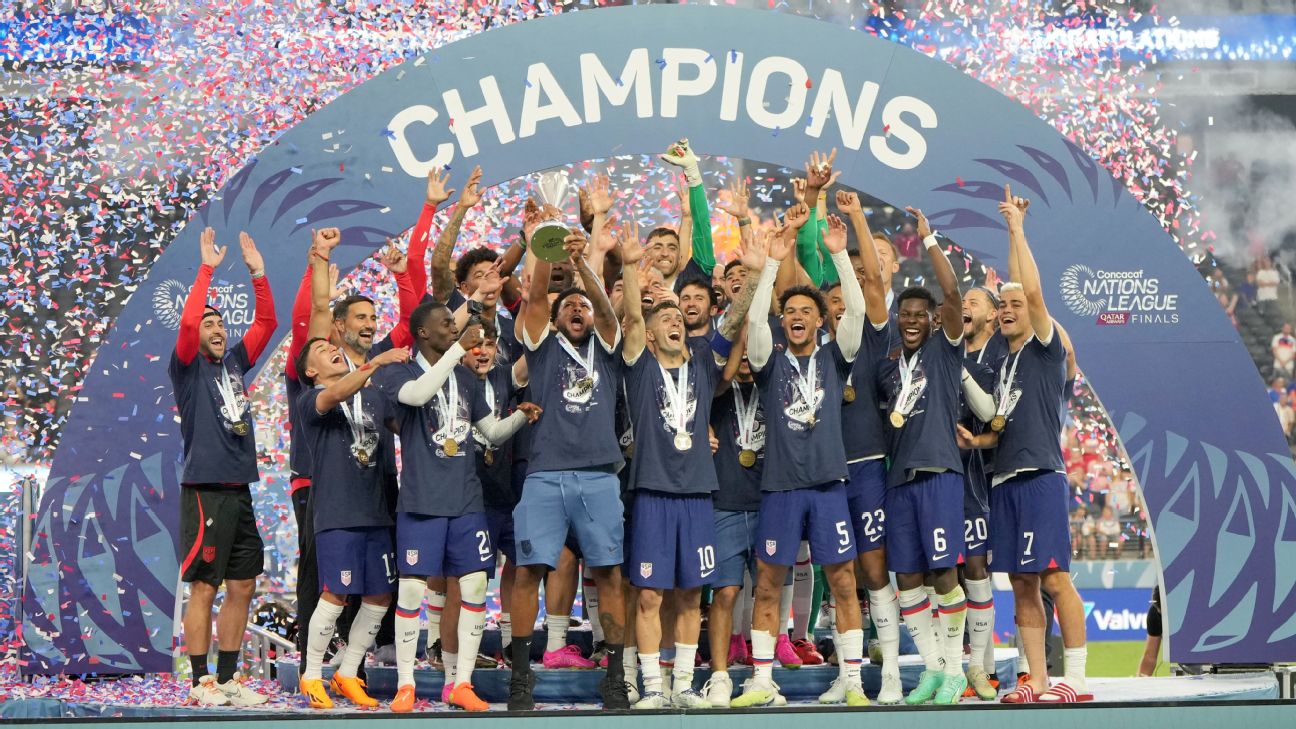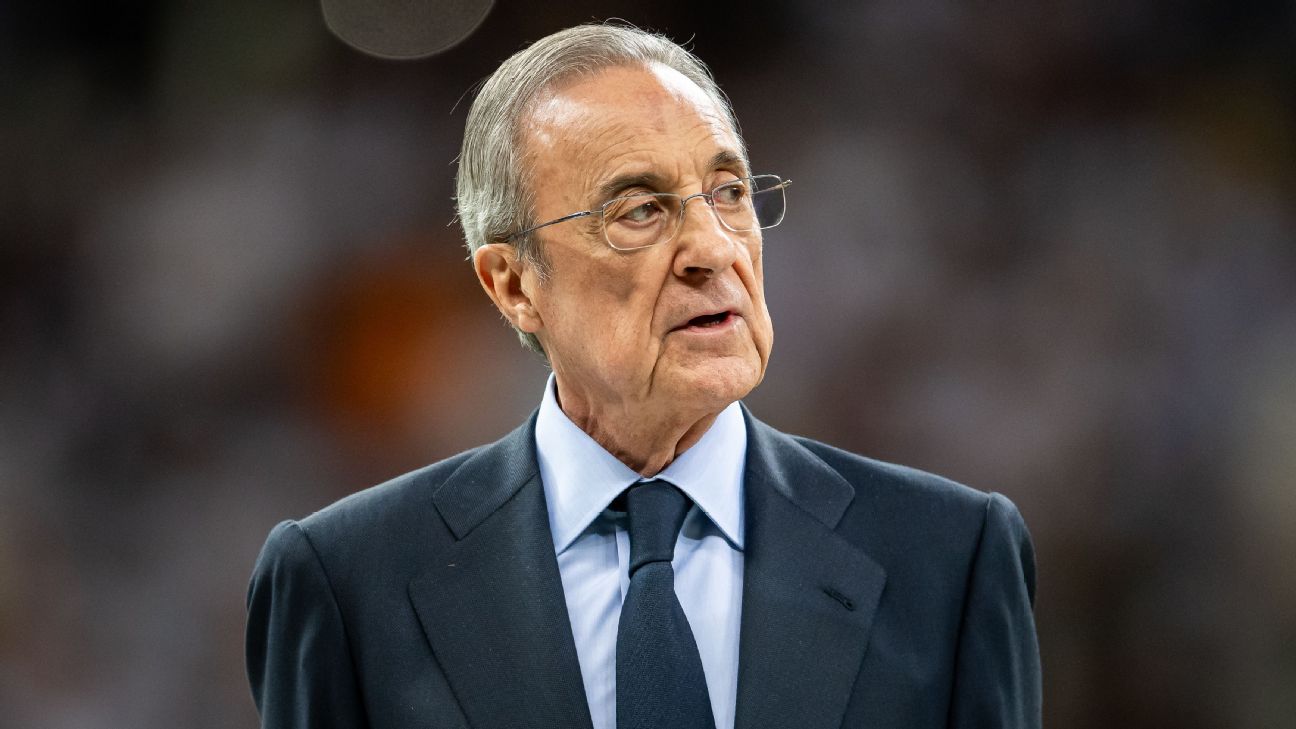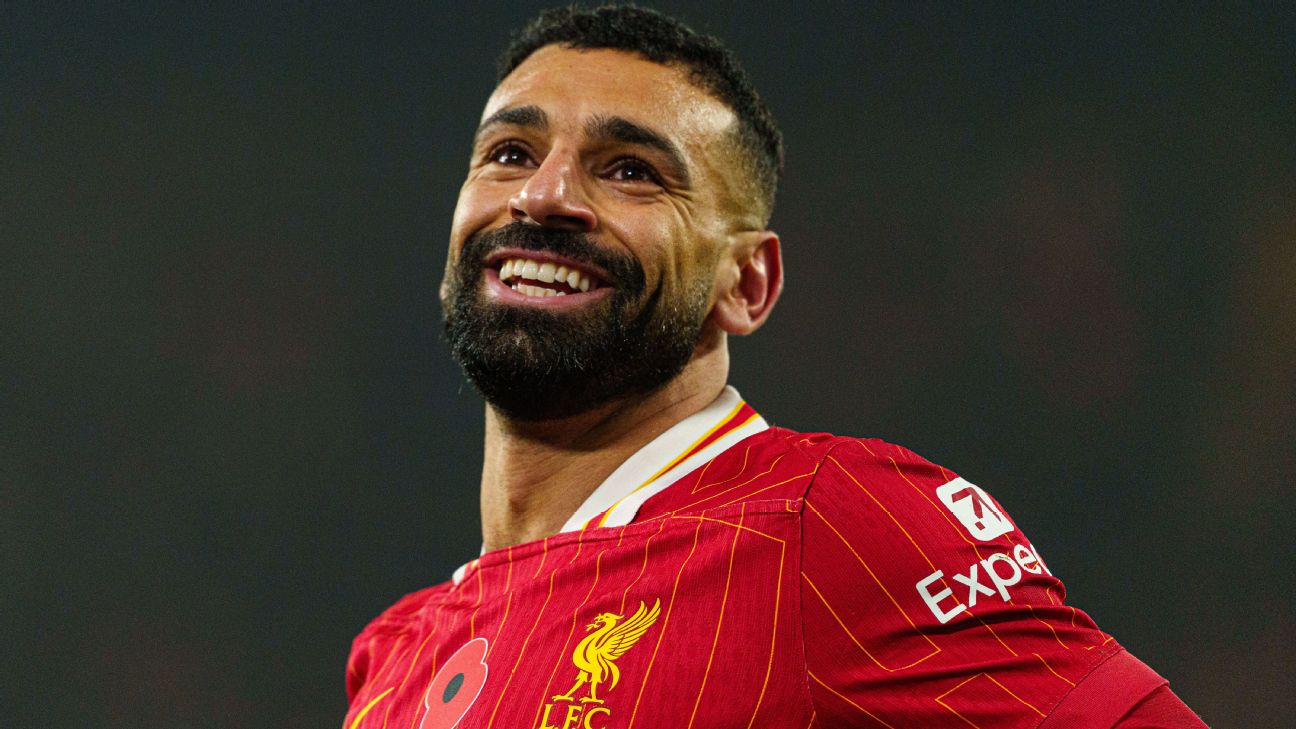LAS VEGAS — The United States retained its Concacaf Nations League crown Sunday with a 2-0 victory over Canada thanks to first-half goals from Chris Richards and Folarin Balogun.
Richards put the USMNT on top in the 12th minute, heading home Giovanni Reyna’s corner. Balogun then doubled the advantage in the 34th minute with a deft finish from Reyna’s through ball that got past Milan Borjan in the Canada goal.
– Stream on ESPN+: LaLiga, Bundesliga, more (U.S.)
Canada did what it could to get back in the game, and enjoyed a hefty 62-38 edge in possession. But despite finding star attacker Alphonso Davies in some good positions, the visitors were unable to make a dent in the U.S. lead. U.S. interim manager B.J. Callaghan went to a five-man back line late on and, despite some tense moments, the hosts were able to see out the match and hoist the Nations League trophy once again.
Honor is due to Callaghan as well. He came into a difficult situation — being the interim to the interim — and was spot-on with his decisions. Keeping him on the staff would have to be a priority for Gregg Berhalter when he takes over for good.
Rapid reaction
1. U.S. reaffirms king of Concacaf mantle
There had been plenty of chatter prior to Sunday’s match as to who exactly should be declared king of Concacaf. Canada certainly had an argument to make in its favor. Not only did the Reds take four points off the U.S. during World Cup qualifying, but they finished top of the Concacaf standings. The U.S. could point to the fact that it is the reigning Gold Cup and Nations League champion, and went deeper in the World Cup.
It’s a debate that will no doubt continue to rage, but on the basis of this match, the U.S. looked a cut (or two) above when the game was in doubt. Every time the U.S. went forward in transition in the first half it looked dangerous, especially when Reyna was on the ball. The movement up top continually befuddled Canada’s back line, as witnessed by Balogun’s clever run and finish off Reyna’s inch-perfect through ball.
Set pieces, long a staple of the U.S. attack, were an area where it had a significant advantage as well, with Richards’ manhandling of Canada counterpart Alistair Johnston allowing him to nod home Reyna’s corner in the 12th minute to put the U.S. ahead.
The U.S. was left to soak up plenty of pressure in the second half, especially with Reyna forced off at halftime because of injury. Canada was also intent on pushing forward given the first-half deficit but couldn’t get the goal that would have added some tension to the game’s final moments.
Instead, Canada was left to endure taunts of “Stick to hockey!” as the game wound down.
2. Reyna and Balogun: The start of something special?
By his own admission, Balogun didn’t have his best game in Thursday’s 3-0 demolition of Mexico. But part of this was down to where and how he was getting the ball. Too often he was fed with his back to goal instead of being given the ball in the channels with room to run. That made him easier to defend, even as he put in a shift, and led to a somewhat ineffective performance.
That was a lesson taken to heart by not only Balogun, but Reyna as well. The U.S. found its new forward with room to run more often, and he was much more dangerous, with the goal the prime example.
Alas, Reyna’s performance was cut short by a calf injury and he was replaced in the second half by Luca de la Torre. Reyna could have been cleaner on the ball as well, but his moments of magic far outweighed his missteps and, based on these two games, he looks to have found a home in the center of midfield. Oh, and please let Reyna take set pieces from now on. The quality in his delivery amounted to a huge upgrade in this department. And best of all, it looks like some chemistry with Balogun is well on its way to being established.
This leads to an intriguing question, however. If Tyler Adams, Reyna, Weston McKennie and Yunus Musah are all healthy, which one sits? At this stage, McKennie would seem to be the odd man out, but that is by no means a slam dunk. In the future it will likely come down to health and form, but Reyna seems a lock.
3. Canada with some questions to ponder
This was supposed to be Canada’s coming out party, a time to end its title drought by winning a trophy for the first time since the 2000 Gold Cup. Instead that wait will have to continue, though the start of the Gold Cup later this month will give the Reds another opportunity.
In the meantime, there are some problems in need of solving. Canada’s back line looked absolutely flummoxed by the movement in the U.S. attack. At one point in the 41st minute, Scott Kennedy engaged in what could only be described as a rugby tackle on Balogun that went unpunished only because Reyna was running with the ball at his feet. Kamal Miller didn’t fare much better.
Manager John Herdman will also need to find a way to get Davies more help. Joe Scally, Brenden Aaronson and Timothy Weah all ran with the ball at the Bayern Munich star, and when Davies had possession, the U.S. threw two and sometimes three defenders him, basically daring someone else in the Canada lineup to beat them. Usually, the dual threat of forwards Cyle Larin and Jonathan David is enough. But this time, it didn’t happen.
Davies did shake loose a few times, including one first-half shot that was well saved by U.S. keeper Matt Turner, but there was almost always a second defender to halt his progress, and he was lacking in end product when he did deliver the ball into the box. It’s an issue that the U.S. has faced with Christian Pulisic in the past, and Canada will need to come up with a solution of its own. Tajon Buchanan was thought to be a player who could provide some balance, but he was limited to 30 minutes as a substitute.
Best and worst performers
BEST
Giovanni Reyna, U.S.: Sure, he played only 45 minutes, but he made his time on the field count with two sublime assists.
Folarin Balogun, U.S.: Even beyond his goal, Balogun was a constant threat all night, and the understanding between him and his teammates is only going to get better.
Chris Richards, U.S.: In addition to his goal, he marshaled a U.S. back line that bent but didn’t break. Also helped keep Larin and David mostly in check.
WORST
Scott Kennedy, Canada: Simply had no answer for the movement and mobility of the U.S. attack, and Balogun in particular.
Alistair Johnston, Canada: Was badly outmuscled on the U.S. opener. He simply needs to be stronger in that situation. He struggled on the ball as well.
Jonathan David, Canada: On a day when Canada needed a big performance, he had one first-half shot that missed and another one late that was wide of the target. The latter miss summed up a frustrating night.
Highlights and notable moments
Richards opened the scoring Sunday from a classic USMNT set piece.
CHRIS RICHARDS SCORES HIS FIRST INTERNATIONAL GOAL 🔥
The @USMNT take the lead in the Concacaf Nations League final. 🇺🇸 pic.twitter.com/kjym95pywc
— CBS Sports Golazo ⚽️ (@CBSSportsGolazo) June 19, 2023
Not to be outdone, Balogun also bagged himself his first senior international goal.
FOLARIN BALOGUN SCORES HIS FIRST GOAL FOR THE @USMNT IN HIS SECOND APPEARANCE! 🇺🇸 🦅 pic.twitter.com/YtrrkRNx8x
— CBS Sports Golazo ⚽️ (@CBSSportsGolazo) June 19, 2023
Once ahead, the USMNT rarely looked troubled and held on to lift the Nations League trophy.
🏆THE @USMNT ARE THE 2023 CONCACAF NATIONS LEAGUE CHAMPIONS 🏆 pic.twitter.com/sGUV601ORs
— CBS Sports Golazo ⚽️ (@CBSSportsGolazo) June 19, 2023
Key stats (provided by ESPN Stats & Information)
– The United States secured its ninth major trophy Sunday (7 Gold Cups, 2 Concacaf Nations Leagues).
– Richards’ goal in the 12th minute is the quickest in any game of his career. It’s his first time scoring in the first 30 minutes of a game.
– Richards’ goal was the third-fastest by a USMNT player in a final in the past 35 years. Only Clint Dempsey (10th minute in 2009 Confederations Cup) and Michael Bradley (8th minute in 2011 Gold Cup) have a faster one in that span.
– Balogun (21) is the second-youngest player to score for the USMNT in a final over the past 35 years, after 18-year old Giovanni Reyna in the 2021 Concacaf Nations League.



